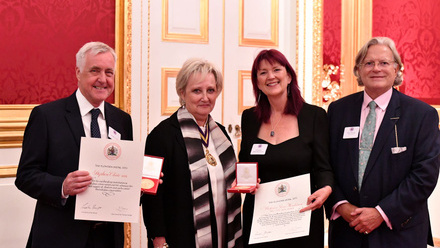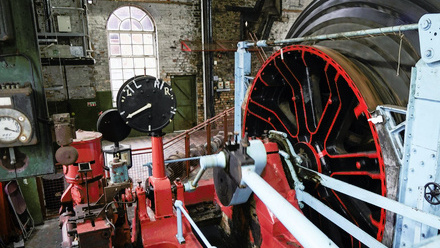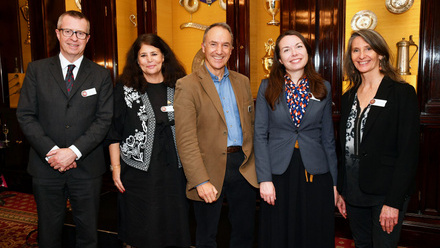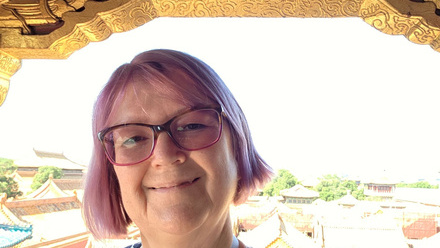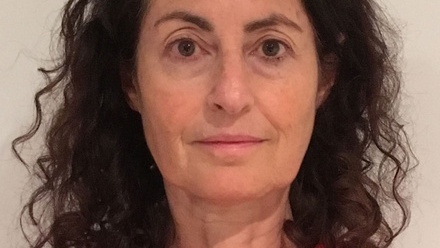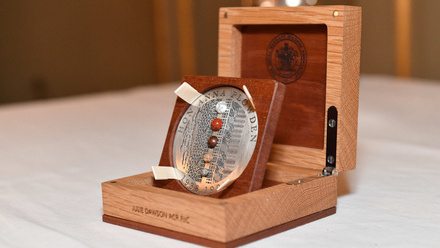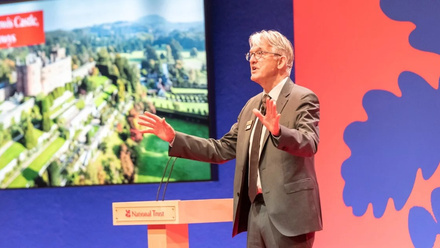Established in 1999 to commemorate the life and work of the late Hon. Anna Plowden CBE (1938 – 1997), the Plowden Medal was endowed by the Royal Warrant Holders Association, of which she was Vice-President. It is awarded annually to an individual who has made a significant contribution to the advancement of the conservation profession.
Here, Chair of the Plowden Medal Committee, Nick Farrow, and Chair of Icon, James Grierson, discuss the award and its importance.
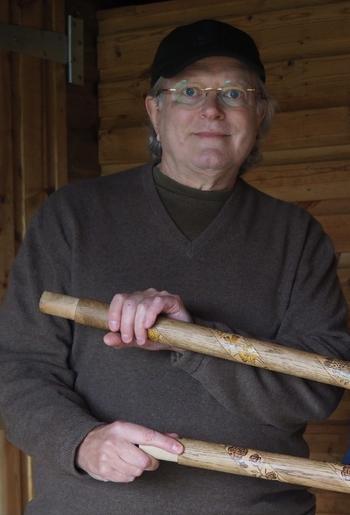
James Grierson: Can you introduce yourself and say a few words about how you became involved with the Plowden Medal Committee?
Nick Farrow: Following my election into the Chair role for the Royal Warrant Holders Charity - The Queen Elizabeth Scholarship Trust, I was told I’d be chairing the Plowden Medal Committee. I knew very little about conservation – so I was surprised but prepared to give it a go. It took me a while to bed into the role, and for the first year or so, it was really hard work. But now I absolutely love being part of the committee. Conservation is such an amazing thing to be able to celebrate. You really don’t have to be an expert to appreciate the importance of conservation.
JG: I think there’s a real pleasure in watching anybody who is really good at their job!
NF: Exactly – and there are some absolutely exceptional people undertaking conservation work. I really enjoy being part of the award process, and I’m so happy to carry on Chairing the Committee.
The Royal Warrant Holders Association has stood behind the Plowden Medal very positively for the past few years. Why is the Medal such a priority?
NF: The RWHA are increasingly concerned with sustainability. Running sustainable businesses and looking after the infrastructure of our country is hugely important. RWHA members see the importance of looking after our country’s history and, as a result, it's cultural heritage. Conservation, naturally, goes hand-in-hand with this, and it’s something we’re keen to raise awareness of.
JG: It’s a central plank of Icon’s strategy too – to boost the profile and importance of conservation within the public awareness. In many ways, the profession is little understood by the general public. The Medal is all about celebrating distinguished conservators and the role they play in conserving and protecting our cultural heritage.
NF: We have such a rich culture in this country. It’s easy to forget when we’re at stately homes or National Trust properties, with our ice creams in hand and kids on bouncy castles, that every element has to be carefully looked after. Conservation is such an important part of British heritage and Britain’s future moving forward – we are nothing without our history.
When it comes to recognising the conservation work that is so important, what kind of professional achievements are you looking for in potential candidates for the Plowden Medal?
NF: When we examine the applications, we don’t look for honours degrees or for specific academic results or examinations. We look at breadths of experience and excellence. All our conservation experts are highly qualified, but in very different ways.
JG: Yes, I would stress that there are different ways of being excellent. All of the people the medal recognises are people who have an impact on others, whether that’s technically, commercially, through communications or through professional development etc. Just having a senior conservation job and holding it down isn’t enough. This is about recognising those who go above and beyond.
NF: There’s a feeling of responsibility to conservation. Whether they are in private practice, in an institution, self-employed or otherwise, they want to give back for generations to come.
JG: All of them in their different way have a sense of responsibility both to the public interest and the conservation profession. They help to train and educate others, and to spread the word.
What role can medal winners play in raising the profile of conservation and its value to society?
NF: All medal winners are people who already raise the profile of conservation, but we hope they will carry on doing it with an enhanced status! They are great at uniting people, making connections, creating networks, and sustaining the working culture of people around them.
JG: It’s important that they don’t just represent conservation in professional or technical environments, but also that they’re part of the movement to make conservation accessible and compelling to the public.
What are your hopes for the future of the Plowden Medal?
NF: We want to be more outward facing, so the public recognises the responsibilities of being a Royal Warrant Holder, what the Plowden Medal is, what conservation is, and why these things are so important. The Plowden Medal should be recognised as the top industry award for conservation professionals. We also want to be recognising working conservators, not just those coming towards the end of their careers. We don’t want to simply say ‘congratulations’, we want to say, ‘congratulations - let’s see some great things in the future!’.
JG: I think this is something Icon is acutely aware of too – harnessing the power of up-and-coming professionals who have achieved a lot but have a lot more still to contribute.
NF: RWHA and Icon have a strong relationship and share similar objectives. Obviously Icon promotes the award and helps with judging, and without Icon’s involvement it wouldn’t be the award it is today - it’s significant that almost every year the award has gone to an Icon member (not a requirement, we’d hasten to add!) – there are always some brilliant candidates for nomination.

